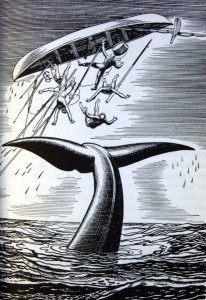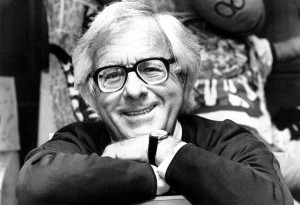by James Scott Bell
@jamesscottbell
Robert Heinlein had two rules for writing:
- You must write.
- You must finish what you write.
We usually have no problem with #1. But #2 can bite us in the caboose.
What is it that keeps us from finishing a project?
It could be fear … that we haven’t got a handle on the story.
It could be perfectionism … we want the story to be excellent, but sense it isn’t the best it can be.
It could be laziness … it’s easier to tell someone who doesn’t write just how hard it is to write, than it is to actually write.
Whatever it is, it holds us up. And that’s bad for everyone, including your characters.
I find endings to be the hardest part of the craft. They have to do so much–leave the reader satisfied or, better, grateful. Wrap up the story questions. Deliver a certain resonance.
And we all know a lousy ending can ruin an otherwise great reading experience.
My own approach to endings is to have a climactic scene in mind from the start, even though it is subject to change without notice. It usually does change, because as your book grows, unplanned things start to happen. Characters develop in surprising ways; a plot twist takes you around an unforeseen corner. I’ve even had characters refuse to leave a scene when I’ve told them to. I always try to incorporate these things because, as Madeleine L’Engle once said, “If the book tells me to do something completely unexpected, I heed it. The book is usually right.”
As you make these changes in your plot, the ripples go forward in time to affect how the book will end.
So you adjust. When I get to the point where I’m going to write my ending scenes, I follow a plan I call Stew, Brew, Accrue and Do.
I think hard about the ending for half an hour or so, then take a long walk, letting the story “stew” in my subconscious. My walk inevitably hits a Starbucks, because you can’t walk in any direction on earth for very long before hitting a Starbucks.
Inside I go and order an espresso. Brew.
I sip the espresso and take out a little notebook and pen. That’s when I Accrue. I jot idea after idea, image after image, doodle after doodle. I’m not writing the words of the ending, I’m just capturing all the stuff the Boys in the Basement are throwing out at me because they are hopped up on caffeine.
Then it’s back to my office where I actually Do–write the blasted thing until it’s done!
Now, even with that plan there have been a few occasions in my professional life where I get to Do and got stuck in Didn’t. I just was not finishing, for some reason or other. And I had to break through because a company had been nice enough to pay me some money and was expecting, in return, a complete manuscript. How unfair!
I always made it. And of late I haven’t really gotten stuck in Didn’t.
With one screwy exception: my novelette, Force of Habit 4: The Nun Also Rises.
I mean, I should have finished this six months ago! I was doing other projects during this time, yes, but I always came back to Force 4 trying to figure out what the heck was going on–or, rather, what was not going on–with my vigilante nun, Sister Justicia Marie of the Sisters of Perpetual Justice.
Finally, a couple of weeks ago, I just said to myself, “Listen, Stupid. Finish the doggone story! Or are you just a big fraud?”
“Okay,” I answered back. “How do you propose I do it? And don’t call me Stupid.”
And then I thought of Ray Bradbury.
As an L.A. resident I was privileged to hear Bradbury speak on a number of occasions. He liked to tell the story of when he was writing––or trying to write––the script for John Huston’s film version of Moby-Dick. He was in Ireland and London for months, trying to
pare down the huge novel and all its symbolism into a filmable screenplay. Finally, Huston demanded the script.
Bradbury rolled out of bed one morning and looked in the mirror and cried, “I am Herman Melville!” Then he sat down at his typewriter and went at the keys for eight straight hours. And finished. He took the pages across town and handed them to Huston. Huston looked at them and said, “What happened?”
And Bradbury said, “Behold Herman Melville!”
Why did I think of this account? Because Force 4 was born as I was reading the biography of Robert E. Howard, one of the great pulp writers. He was, of course, the creator of Conan the Barbarian, as well as other series characters in different genres. His writing was big and wild and full of action.
Which was how I was conceiving this latest story of mine.
So I pulled a Bradbury. In my office I cried, “Behold Robert E. Howard!”
And then I wrote and wrote and finally finished the story. And it is big and wild and full of action.
But most important of all, it is done!
And now it is available for Kindle. Here’s a preview:
So tell me, writing friends. Have you ever had a real hands-on struggle with an ending? How did you handle it?

